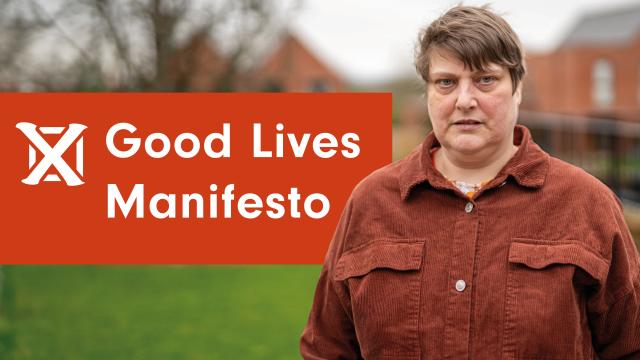
Labouring away: time to get serious about social care
 Lisa Hopkins, CEO at SeeAbility, blogs about the new government, and how it can fix the social care system.
Lisa Hopkins, CEO at SeeAbility, blogs about the new government, and how it can fix the social care system.
I started this blog on the eve of the general election, where for most of the election debates we have seen very little focus on social care, with a few honourable exceptions. It continues to astound me that social care is not an election battleground: over 1 million adults draw on social care directly and it costs the government £25 billion a year. Why it’s not a headline issue for politicians is obvious, but why journalists and the public don’t force it to be one continues to amaze.
I’ve lived and breathed social care for nearly three decades (my charity has lived and breathed it for 225 years!).
Over those years, is there any other area of public policy and service which affects so many millions of people where ambition has been so lacking and, in many instances, so studiously ignored? Will that change from today’s news that we have a Labour government with one of the biggest majorities in recent history?
Will social care finally get the attention it deserves and so clearly needs? Or will it be ignored, forgotten about, and the people who draw on it and work within it left to struggle on?

I have some thoughts on that, and what the opportunities may be.
We’ve all been warned that there’s no new money, so it’s almost certain that social care won’t be going from famine to feast. I understand the concerns about money being poured into ‘more of the same’, but there’s no escaping the need for some urgent injection of funding to provide short term stability in delivering social care.
In the longer term, I feel strongly that there are areas of social care which soak up much needed resources that could otherwise be spent in much better ways for people being supported.
First up - commissioning. Commissioning bureaucracy can cause a huge cost to the people who draw on social care, providers and the public purse as it varies widely according to area with values being placed differentially on quality and cost, and can sometimes be adversarial. Reforming commissioning should be part of Labour’s emergent thinking on a National Care Service and embedded around national standards and rights to support. This would be very welcome, potentially cost saving, and life changing for many.
Secondly, let’s rethink how we treat the social care workforce. At SeeAbility we want to support people to have the best life possible - to belong, to thrive, to love, and much more. None of this can happen without a skilled and dedicated support team. Labour’s manifesto and announcements have centred on legislating for new employment rights and the start of collective bargaining for a social care Fair Pay agreement - all in its first 100 days. As a real living wage employer already, I can say how hard it has been to gain the uplifts needed from council funders to reward our workforce. In most cases, these have been far from acceptable and often insulting. Parity with the NHS is much needed in more ways than just pay; social care colleagues require being valued and recognised alongside our ‘NHS heroes’.
Finally, I am imploring all those responsible within the new government to better understand both the diversity of social care provision, and the lives of disabled people who draw on it for support. Social care is not solely an adjunct to the NHS enabling ‘release’ of hospital beds. Nor is it a last resort for an ageing population. Social care is not a problem, an inconvenience, or a financial drain. I want the new government to share our vision for social care – to see it as a brilliant opportunity to support people’s ambitious lives. Let’s build a social care system that we can all take pride in.

I am hopeful that some of the fresh faces that have been elected across all parties will be bringing their own personal experiences of disability and social care to the table. At SeeAbility, people we support will be inviting newly elected MPs to meet them and also hear more from our colleagues who work so hard. As we enter our 225th year as a charity, I’m also determined that the added value of charities in delivering social care is understood.
We are more than a provider.
With such a majority, Labour has the luxury of knowing it can advance its agenda irrespective of the opposition.
We must collectively and passionately ensure that social care reform is part of this agenda, setting a vision that embraces the value of care and support to transform people’s lives, and the economy.
As the Social Care Future movement puts it – let’s recognise the role of social care at every level of society. Give people reasons to be hopeful, not alarmed. Let’s make adult social care about all of us.




